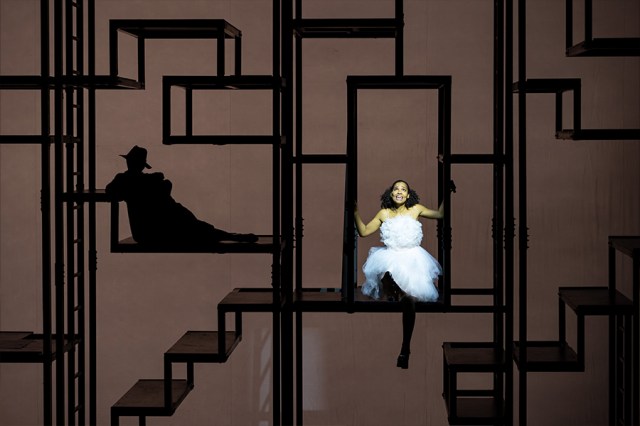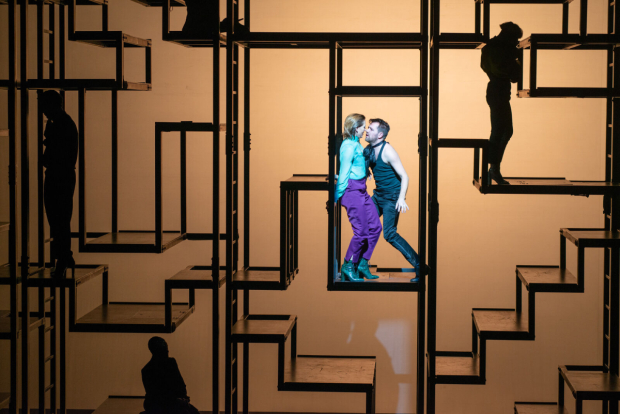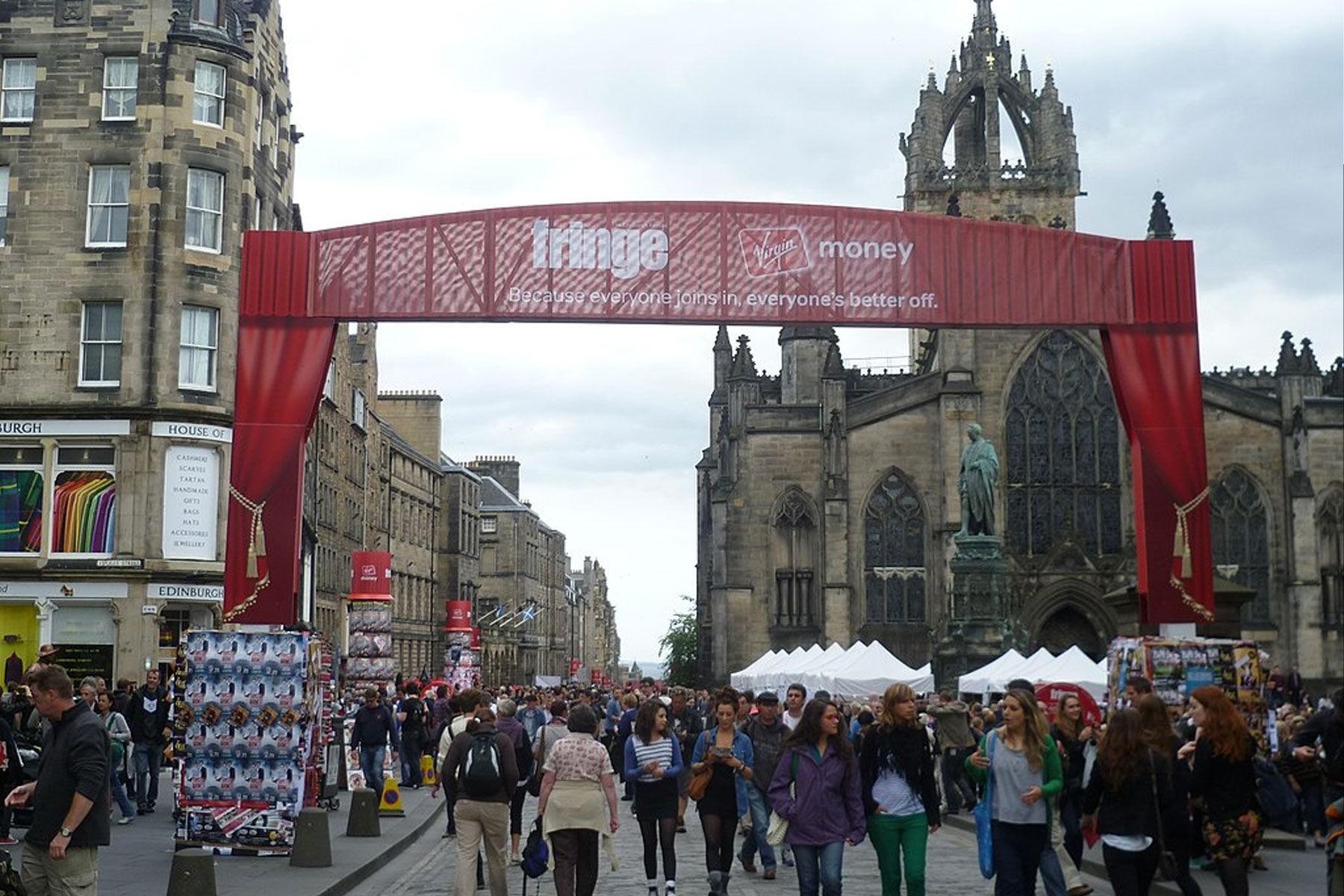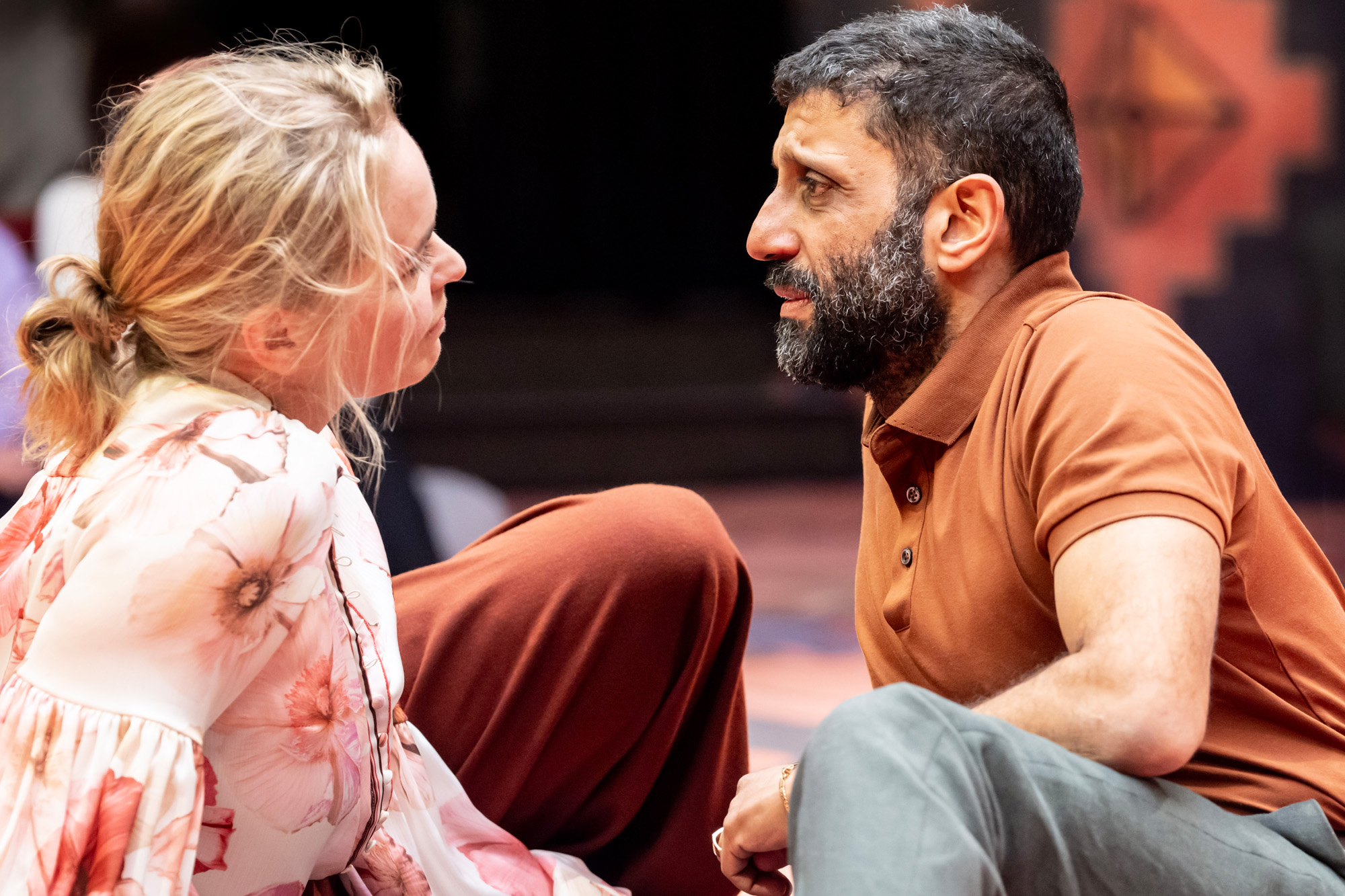The Threepenny Opera at Edinburgh International Festival – review

Barrie Kosky’s production of The Threepenny Opera for the legendary Berliner Ensemble is quite simply astounding. It takes the breath away with its dazzling confidence and utter clarity, unfolding with the bitter twist of political reality and the unsettling logic of a dream.
From the moment Josefin Platt’s Moon over Soho pokes her masked face through a curtain of glittering silver strands and begins to sing Mack the Knife with biting intent, you know you are in safe hands. This is a production that has purpose behind it.
The six-strong orchestra under Adam Benzwi makes Kurt Weill’s music sing from a clearly visible pit at the front of the stage; they are players in every sense, involved in the action, while letting the music emerge as a coil of fiercely intoned sound, its strangled melodies punctuated by sharp intonation in brass and wind, piano and harmonium. It transports you back to Berlin in 1928, when the Berliner Ensemble performed the premiere of this ground-breaking piece of music theatre.
However, Kosky’s achievement is to both honour the past – and to pull the radical intent of the work into the present. Elizabeth Hauptmann is now credited alongside her lover Brecht as the writer; past wrongs are righted. Equally crucially, the production’s luminous theatricality makes it a thrillingly relevant experience.
Brecht so often feels like rather stodgy homework; here the power of his politics, the daring of his decision to break the fourth wall and involve the audience in a way that is at once enthralling and distanced from itself hits powerfully home. Characters demand spotlights for their words, wait for applause, switch languages and chat with the audience. At one point, Macheath and Polly, his newly-wed so-called love, actually encourage someone to sing to them.
By paring back a lot of the social realist clutter, cutting minor characters and shaping the low-life trimmings of the show into stylised entertainment, Kosky and his team allow the savagery of the show’s satire of man’s inhumanity to man, and the way poverty breeds evil, to make its full impact. Everything feels honed, gleaming.
Rebecca Ringst’s set, lit by Ulrich Eh, plays a vital part. Behind the silver strands is a stage-spanning scaffold, dissected by steps and ledges. The cast squeeze themselves up and down squared spaces that trap them like photograph frames; as the action progresses, backdrops rise behind them, silhouetting them against different lights, altering the mood. The images are spectacular; the colours of the light and of Dinah Em’s costumes create pictures of citrus tang, day-glo oranges, shocking pinks, lime greens.
As the story unfolds, the set breaks up, moving on smooth tracks, and the colours fade to browns and blacks. But the staging never loses its perfectly judged choreography; the cast stand in lines or sit in spaces that create symmetries that seem to pinion them within invisible chords.
And what a cast; the singing as strong as the dialogue, the conception of each character fully formed, their interactions smooth and convincing. Gabriel Schneider’s Macheath is sensational, full of knowing charisma and danger, worming his way around the stage as he weasels his way into women’s hearts, dark and genuinely frightening in his cynical amorality, strutting like a pop star as he sings of man’s ability to suppress his own humanity while blood runs down his face.
But he’s more than matched by Cynthia Micas’s Polly, clear voiced and clear eyed, funny and wary. All the women are given rounded characters; the show is careful not to turn them into tarts with hearts, but to give them full agency, from Amelie Willberg’s Lucy, a whirl of energy and passion, to Bettina Hoppe’s Jenny, singing of betrayal with devastating stillness.
I’ve spent the whole Edinburgh Festival longing to see a world-beating work, that illuminates the world, that makes the heart rise by its understanding. This was it. Hats off to the Edinburgh International Festival for booking it; I’d give it ten stars if I could.












